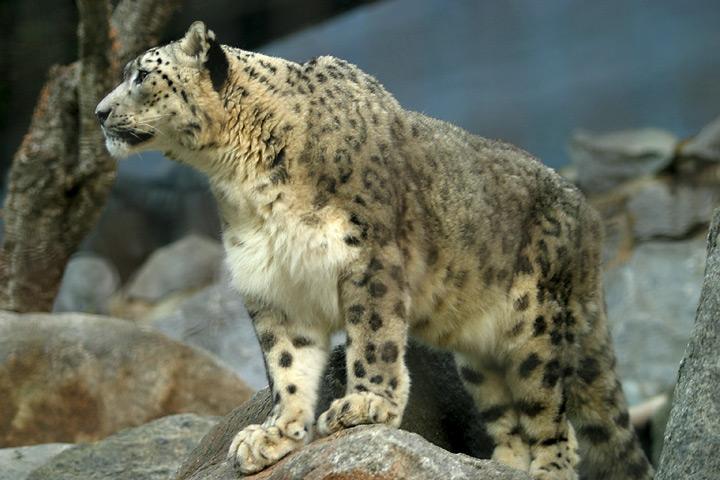As leaders from the 12 snow leopard range countries prepare to meet this month to further deliberate on the future of the endangered cat, conservationists have called on them to take the next step and pledge concrete action to ensure the animal’s survival.

The snow leopard lives in the Himalayas, the mountains of Central Asia and the Mountains of Southwest China as well as the Tibetan plateau. Their range covers Afghanistan, Bhutan, China, India, Kazakhstan, the Kyrgyz Republic, Mongolia, Nepal, Pakistan, Russia, Tajikistan and Uzbekistan.
At the close of a meeting in 2013, the leaders pledged to secure at least 20 snow leopard landscapes of Asia by the year 2020. They are however coming together again from Thursday, August 24 to Friday, August 25, 2017 for the International Snow Leopard & Ecosystem Forum in Bishkek, Kyrgyzstan.
Besides the 12 leaders, the International Snow Leopard & Ecosystem Forum brings together other interested nations with leaders from international institutions, donor agencies, conservation organisations, and scientific institutions.
The high-level event aims to further strengthen the range countries’ ongoing effort to protect the snow leopard, and to galvanise international support for their ambitious plan of securing 20 snow leopard landscapes by the year 2020.
“The snow leopard is under threat. If we do not take drastic steps, we might permanently lose this priceless gift of nature – as we have already lost forever thousands of other rare and amazing species.
“Let’s work together and shape the world’s joint response to the threats that this cat – and our mountain ecosystems – are facing,” says Almazbek Atambayev, President of the Kyrgyz Republic (or Kyrgyzstan).
In line with Mr Atambayev’s submission, environmentalists fear that the snow leopards, which are iconic to the high mountains of Central Asia, face the threat of extinction. They posit that there may be as few as 4,000 remaining in the wild, and their numbers continue to drop at an alarming rate.
Sara Thomas, Director, Activism and Outreach at the World Wildlife Fund (WWF), suspects that the snow leopard population has declined by 20% over the last 16 years. She attributes this development to:
- Poaching. Snow leopards are killed for their beautiful coats, but they are also hunted for their bones and other body parts – resulting in an increase in the illegal trade for snow leopard parts.
- Conflict with communities and retaliatory killings. As their natural prey becomes harder to find, snow leopards resort to killing livestock for survival – increasing the risk of retaliatory killings.
- Habitat loss. Expanding human and livestock populations are fragmenting the historic habitat range of the cats.
- Climate change. The impact of climate change on the fragile mountain environment puts the future of snow leopards at even greater risk.
“Climate change poses the biggest long-term challenge snow leopards face – the impact of climate change could result in a loss of up to 30% of the snow leopard habitat in the Himalayas alone,” she adds.
Besides allowing leaders of the 12 snow leopard range countries as well as the international community to work together and achieve tangible progress in their effort to protect and conserve the snow leopard and its mountain ecosystems, the International Snow Leopard & Ecosystem Forum will also explore several approaches to improve financing mechanisms including regional and national trust funds, investment funds, and other emerging tools, it was gathered.
“Donor agencies, governments, corporations and international financial institutions will find an excellent forum to explore investment opportunities in sustainable forestry and agriculture, ecotourism, climate adaptation, and clean energy (micro hydro, solar). Successful green investment models can be showcased and best practices on integration public policy will be highlighted,” the organisers stressed.
